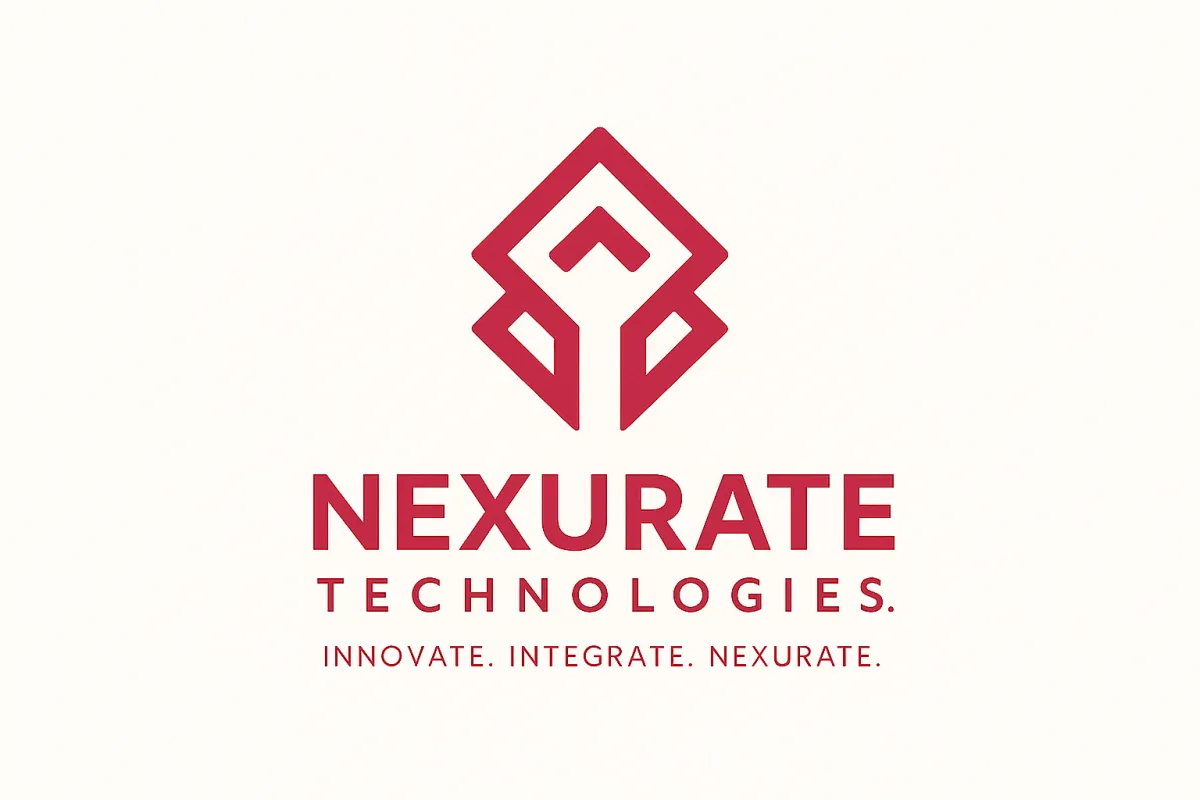📢 AI Chat Bot Agents – Nexurate
🚀 Market Demand & Why AI Chatbots Are Critical
In today’s hyper-connected digital world, customers expect instant support anytime, anywhere. Across global markets, enterprises are rapidly adopting AI chatbot solutions to provide real-time, multilingual customer service while reducing support costs.
The global AI chatbot market crossed USD 1 billion in 2023 and is set to nearly double by 2028 with a CAGR above 22%, Adoption of AI chatbot is accelerating, with businesses leveraging chatbots to handle large customer bases, streamline workflows, and enhance engagement across industries such as e-commerce, banking, healthcare, and education.
Globally, over 58% of enterprises have already implemented or tested AI chatbots, and 65% report measurable cost savings and efficiency gains. For companies looking to scale operations, improve customer experience, and stay competitive, AI chatbots are not just a trend — they are a business necessity.
Nexurate’s AI Chatbots are transforming the way businesses engage with customers. Powered by advanced natural language processing and intelligent automation, our chatbots deliver instant, accurate, and contextual responses across web, mobile, and messaging platforms.
AI-Powered Conversations.
👥 Multilingual Chat Support
⚡ 24/7 Instant Assistance.
📊 Smart Automation & Insights.
💡 Cost-Efficient Automation
👉 Nexurate’s AI Chatbots combine intelligent automation with human-like conversations to deliver personalized support 24/7. Turn customer queries into lasting satisfaction.
🌟 What Makes Nexurate's AI Chat Bot Unique?
💬 Smart Chat Conversations – Our AI Chatbot goes beyond scripted replies. It understands context, intent, and tone to deliver natural, human-like conversations. This means your customers feel heard, supported, and valued — leading to stronger engagement and brand loyalty.
🌍 Multilingual Chat Support – Whether your audience is in India, Southeast Asia, or global markets, Nexurate’s chatbot speaks their language. By providing instant multilingual assistance, you eliminate communication barriers, expand reach, and connect with customers worldwide.
⚡ 24/7 Chat Availability – Never miss an opportunity again. With Nexurate’s always-on chatbot, your business is available 24/7 to answer queries, handle support, and even qualify leads — ensuring that every interaction can turn into revenue.
📊 Seamless Customer Experience & Insights – Beyond answering questions, our chatbot streamlines workflows, captures valuable customer data, and provides actionable insights. This helps you optimize support, personalize interactions, and make smarter business decisions that drive growth.
Nexurate AI Chat Bot 👉 Ready to see it in action? Book your free demo today and discover how Nexurate’s AI Chatbot can transform your customer engagement.
Get Free Trial of Nexurate Conversational AI Agent
Our AI understands context, tone, and intent using advanced NLP algorithms. Emotion detection capabilities ensure empathetic responses that match customer mood and needs. Every conversation trains the system to become smarter. Machine learning algorithms continuously improve accuracy, response quality, and customer satisfaction rates.
Blogs

CRM Transformation: Unlock Success with AI in 2025

In today's fast-paced business world, staying competitive is crucial. CRM business transformation is the key to unlocking success. It enhances customer relationships and boosts business efficiency.
Digital transformation plays a vital role in this process. It integrates technology with business operations seamlessly. This integration leads to improved customer engagement and satisfaction.
AI-powered CRM solutions, like Salesforce, are game-changers. They offer predictive analytics and sales automation. These tools streamline operations and provide valuable insights.
Understanding customer needs is essential for growth. CRM systems help businesses achieve this by managing customer data effectively. They align sales, marketing, and customer service efforts.
Implementing a CRM strategy requires careful planning. It involves setting clear business requirements and objectives. This ensures a smooth transition and adoption.
The influence of Salesforce's CRM technology is significant. It provides robust tools for business innovation. These tools drive digital transformation and business growth.
In this guide, we explore how CRM helps in business transformation. Discover the steps to unlock your business's potential today.
Understanding CRM Business Transformation
CRM business transformation is not just a buzzword. It is a strategic shift that changes how businesses operate. By focusing on customer-centric approaches, companies can stay ahead.
A CRM system serves as the backbone for this transformation. It organizes customer data and facilitates better decision-making. This system enhances communication across departments, leading to improved collaboration.
Understanding its importance starts with recognizing the benefits. Key benefits include:
Improved customer relationships
Enhanced business efficiency
Increased revenue through better insights
CRM transformation is a continuous process. It demands adapting to new technologies and market changes. Companies must regularly assess their CRM strategies and make necessary adjustments.

For many businesses, the journey begins with setting clear goals. These goals should align with broader company objectives. A robust CRM strategy integrates with daily business operations, ensuring lasting change.
Ultimately, CRM business transformation is about embracing a new way of thinking. It's about leveraging technology to deliver exceptional customer experiences. By doing so, businesses can unlock new growth opportunities and maintain a competitive edge.
The Role of Digital Transformation in CRM
Digital transformation is a pivotal element in CRM strategies. It involves integrating technology to enhance customer interactions. This integration facilitates seamless data sharing across platforms.
Businesses leverage digital tools to understand customer behavior better. These tools provide insights into purchasing patterns and preferences. As a result, companies can offer personalized services and products.
Digital transformation in CRM includes several aspects:
Utilizing AI for predictive analytics
Automating routine customer service tasks
Enabling real-time data access

One significant advantage is increased efficiency. By automating workflows, businesses save time and resources. This efficiency leads to faster service delivery and higher customer satisfaction.
Moreover, digital transformation makes businesses more adaptable. It allows them to respond swiftly to market trends and customer needs. Adapting to digital changes is crucial for staying competitive.
In summary, digital transformation is not optional in CRM. It's an essential component that drives innovation and enhances customer relationships. Embracing digital transformation helps businesses unlock their full potential.
Key Drivers of CRM Business Transformation
CRM business transformation is driven by several crucial factors. Understanding these drivers is essential for a successful implementation.
Firstly, businesses aim for improved customer experience. A seamless experience keeps customers engaged and loyal. CRM systems help tailor interactions to meet individual needs.
Secondly, competition pushes companies toward innovation. Staying competitive requires adopting new technologies. CRM platforms offer tools to innovate and outpace rivals.
Additional drivers include:
The need for integrated data systems
Demand for better sales automation
Increasing importance of customer feedback
Operational efficiency also propels transformation efforts. Streamlined processes reduce errors and save costs. CRM solutions automate tasks, enhancing productivity across departments.
Lastly, the wealth of data available today calls for smarter management. CRM systems provide analytics to interpret this data. Businesses use these insights to refine strategies and target customers effectively.
In conclusion, these drivers highlight the necessity of CRM transformation. Businesses that embrace them position themselves for growth and success in a rapidly evolving market.
CRM Transformation Business Requirements: Setting the Foundation
Laying a strong foundation is key to successful CRM transformation. Defining business requirements is the first crucial step. Clear objectives guide the entire process.
Understanding the company's needs helps set priorities. It's essential to analyze current systems and identify gaps. This ensures that the new CRM addresses specific issues.
Involve stakeholders at every stage. Their insights are invaluable. Gather feedback from sales, marketing, and customer service teams for a holistic approach.
Here are essential requirements to consider:
Integration needs: Seamless data flow across systems
User-friendliness: Intuitive interface for staff adoption
Customization: Tailor features to business specifics
Scalability: Support future growth and changes
Lastly, establish metrics to measure success. Define key performance indicators (KPIs) aligned with goals. This helps track progress and adjust strategies as needed.
In conclusion, a well-defined requirement list facilitates smooth CRM transformation. It aligns technology with business goals, ensuring a strategic fit.
The CRM Business Transformation Process: Step-by-Step
Embarking on CRM business transformation requires a structured approach. A step-by-step process ensures comprehensive coverage. Each phase contributes to overall success.
First, conduct a thorough needs assessment. Identify goals and challenges. This helps in defining the scope of the project.
Next, develop a detailed plan. Include timelines and resources needed. A clear roadmap keeps the team focused and aligned.
Implementation follows planning. Roll out the CRM system in phases. This reduces risks and facilitates smoother adoption.
Training is critical. Ensure staff are well-prepared to use the new system. Focus on features that enhance productivity and service.
Consider this step-by-step checklist for CRM business transformation:
Needs assessment: Understand current challenges
Planning: Develop clear timelines and steps
Implementation: Phase-wise roll-out to minimize disruptions
Training: Equip teams with necessary skills

by Daria Nepriakhina 🇺🇦 (https://unsplash.com/@epicantus)
Finally, evaluate and optimize. Use feedback to make adjustments. Continuous improvement maximizes the benefits of the CRM system.
In summary, a structured process streamlines CRM transformation. It ensures all aspects are covered and aligned with business objectives. This thoughtful approach is crucial for achieving long-term success.
The Influence of Salesforce and AI CRM Solutions
Salesforce has transformed the CRM landscape. Its tools provide robust capabilities for businesses. These enhance customer interaction significantly.
The power of AI in CRM cannot be overstated. AI-driven insights improve decision-making. Predictive analytics offer foresight into customer needs.
Salesforce's impact on business transformation is profound. It offers integrated solutions. These solutions align with digital transformation goals.
Key benefits of Salesforce and AI CRM solutions include:
Enhanced customer data analysis: Uncover hidden patterns
Automated sales processes: Increase efficiency and reduce workload
Personalized customer engagement: Drive satisfaction with tailored experiences

by Sufyan (https://unsplash.com/@blenderdesigner)
AI in CRM enables proactive strategies. It helps businesses anticipate trends. This leads to a competitive edge in dynamic markets.
In conclusion, Salesforce and AI CRM tools drive innovation. They equip businesses to adapt swiftly. This agility paves the way for sustainable growth and success. Through these technologies, enterprises can revolutionize customer interactions, enhance operational efficiency, and navigate the evolving business landscape with confidence.
Enhancing Customer Relationship and Engagement
Customer relationship management (CRM) systems are vital for building meaningful customer connections. They centralize data to provide a unified view of customers, which is essential for understanding needs and preferences. This comprehensive insight allows businesses to tailor interactions and foster loyalty.
Enhanced engagement hinges on personalized communication. CRM systems empower businesses to send customized messages and offers. This personalization strengthens relationships and improves customer satisfaction. Clients who feel valued and understood are more likely to remain loyal.
Effective customer engagement involves multiple touchpoints and strategies. CRM systems support this by enabling consistent interactions across channels, whether it’s email, social media, or direct calls. A seamless experience across platforms ensures that customers receive the attention they deserve.
Key ways CRM enhances customer engagement include:
Personalized communications: Target specific customer needs
Consistent interactions: Ensure uniform experience across channels
Feedback management: Listen and respond to customer inputs

by ALEXAGATE (https://unsplash.com/@alexagate)
In summary, CRM systems are indispensable for nurturing customer relationships. By leveraging data and analytics, businesses can engage more effectively. This not only enhances customer satisfaction but also drives long-term loyalty and business success.
CRM Strategy: Aligning with Business Goals
A CRM strategy must align with a company’s overarching goals. This alignment ensures that CRM initiatives support broader business objectives, leading to cohesive growth and efficiency. Without this synergy, CRM projects may falter.
Defining clear objectives is key to successful CRM strategy alignment. Companies should identify how CRM can contribute to targets like customer retention or revenue growth. Setting these goals provides direction for CRM activities and decision-making.
The strategy should integrate insights from different departments. Cross-departmental collaboration ensures the CRM system meets diverse needs. Sales, marketing, and customer service must work together for a unified approach.
Essential elements of an effective CRM strategy include:
Goal alignment: Connect CRM goals with business targets
Cross-departmental collaboration: Involve all relevant teams
Continuous assessment: Regularly evaluate strategy effectiveness
In conclusion, aligning a CRM strategy with business goals is essential. It maximizes the impact of CRM systems, contributing to sustained business success.
CRM Implementation: Best Practices for Success
Implementing a CRM system can transform a business, but success hinges on following best practices. Effective implementation ensures that the system delivers intended benefits like improved customer relationships and streamlined operations.
Start by clearly defining business requirements. Understand what your business needs from the CRM system, and ensure these align with overall goals. Tailored solutions are more likely to succeed when they address specific operational challenges.
Training is vital for successful CRM adoption. Employees must understand how to use the system effectively to gain maximum value. Comprehensive training should cover all features and demonstrate how they benefit daily tasks.
Collaboration enhances CRM implementation. Engaging staff from different levels and departments encourages acceptance and optimizes system integration. This involvement aids in refining processes and adapting to real-world operations.
Best practices in CRM implementation include:
Define business requirements: Tailor the system to meet specific needs
Provide thorough training: Ensure users are competent with the CRM
Foster collaboration: Engage staff from all levels and departments

by Markus Spiske (https://unsplash.com/@markusspiske)
Successful CRM implementation is not just about choosing the right software. It also involves aligning technology with strategic goals and ensuring employees are ready to use it effectively. This alignment and engagement are fundamental to achieving transformational benefits.
Overcoming Challenges in CRM Business Transformation
CRM business transformation is not without its hurdles. Many organizations face challenges that can impede progress if not addressed promptly. Awareness and preparation are key to overcoming these obstacles effectively.
Resistance to change is common when new systems are introduced. Employees may be wary of altering their routines. It's crucial to communicate benefits clearly and involve staff early in the process to foster acceptance.
Data migration also presents a challenge. Ensuring data accuracy and completeness during transfer is essential. Proper planning and execution can mitigate risks associated with data handling.
Technical issues can arise during CRM implementation. These might range from software bugs to integration hiccups. Having a dedicated support team ready to resolve these issues quickly is vital.
Key challenges include:
Resistance to change: Address through clear communication
Data migration: Plan carefully to ensure accuracy
Technical issues: Maintain a support team for quick resolutions
By anticipating these challenges, businesses can navigate the CRM transformation process more smoothly, leading to successful outcomes.
Measuring Success: KPIs and ROI in CRM Transformation
Assessing the success of CRM transformation requires clear metrics. Key Performance Indicators (KPIs) provide a framework to measure effectiveness. These indicators highlight areas of success and those needing improvement.
ROI is another crucial metric. Determining the return on investment helps gauge the financial impact of CRM initiatives. It reflects the balance between costs and increased revenue from improved operations and customer engagement.
Effective measurement involves tracking specific metrics, such as:
Customer Retention Rates: Gauge loyalty and satisfaction
Sales Growth: Measure improvements in sales processes
Customer Acquisition Cost: Evaluate cost efficiency in attracting new customers
These metrics offer insights into the transformation's impact, helping businesses refine their CRM strategy for optimal results. By focusing on well-defined KPIs and ROI, companies can ensure their CRM efforts align with broader business goals.
Future Trends: AI, Automation, and Business Innovation
The future of CRM business transformation is heavily influenced by evolving technologies. AI and automation are at the forefront, revolutionizing how businesses interact with customers. These advancements create opportunities for more personalized and efficient experiences.
Automation streamlines routine tasks, freeing up valuable time for strategic initiatives. It enables businesses to focus on innovation and growth. With fewer manual operations, teams can dedicate resources to developing new products and services.
AI delivers deeper insights through advanced analytics and data processing. Predictive analytics help anticipate customer needs and market trends. This foresight allows for proactive decision-making and a competitive edge.
Emerging trends promise to reshape CRM strategies, including:
Predictive Customer Service: AI-driven support anticipates user needs
Hyper-personalization: Tailored interactions and communications
Voice and Chatbot Integration: Seamless interaction channels
By integrating these technologies, businesses can foster innovation and achieve significant market growth. Embracing these trends positions companies at the cutting edge of digital transformation.
Conclusion: Unlocking Business Growth Through CRM Transformation
CRM business transformation offers immense potential for driving success. By harnessing CRM systems, businesses improve customer relationships and operational efficiency. Adopting a strategic approach ensures a more seamless transition and lasting benefits.
Strategic alignment with business goals enhances CRM effectiveness. When integrated correctly, CRM solutions provide invaluable insights that promote growth and innovation. Organizations can adapt more readily to changing customer demands and market environments.
Businesses must remain agile in the dynamic digital landscape. A commitment to continuous CRM evaluation and updates keeps organizations competitive. By embracing CRM transformation, companies unlock unprecedented growth and sustainability.
🔎 How Nexurate's AI Chat Bot Agent Works

Discovery & Support Audit
We begin by analyzing your customer support data — identifying the most common queries, peak chat hours, and existing pain points. This ensures the chatbot is tailored to your real business needs.

Intent Mapping & Smart Setup
Next, we define exactly which queries the AI Chatbot will resolve instantly and which should be escalated to a human agent. This balance ensures smooth customer journeys and faster query resolution.

Customization & Seamless Integration
Our chatbot is designed to reflect your brand’s voice and tone, supports localized languages, and integrates seamlessly with your existing CRM, helpdesk, or business systems.

Pilot Launch with Key Metrics
We roll out a pilot with a focused set of customer intents, track performance in real time, and measure metrics like resolution rate, CSAT, and response speed.

Continuous Improvement & Scale
Based on data insights, we refine responses, add new intents, and expand chatbot capabilities. Human agents also benefit by learning from chatbot interactions — improving efficiency across your entire support team.
💡 Smarter Customer Engagement Across Every Industry
🌟 Why Choose Nexurate’s AI Chatbot
📈 Business Impact You Can Expect
💰 25–40% cost savings on support interaction
⚡ 40–60% faster response times for common queries
😀 80–90% CSAT on automated responses
🌍 24/7 multilingual availability to retain, grow customers
🎯 10–30% better lead conversions with chat-bot funnels
🚀 Scalable support to grow without adding headcount
03.
🌍 Personalized, Consistent Experiences
Our chatbot remembers past interactions, understands customer history, and delivers consistent brand voice across every channel.
01.
🎯 Cut Costs Boost Efficiency
By automating FAQs, order tracking, payment queries, and other routine requests, Nexurate reduces live agent handoffs and frees human teams for complex issues.
04.
💡Reach Customers Globally
Support customers in English, regional Indian languages, and global languages like Mandarin, Malay, and Tamil. Localized phrasing ensures comfort and adoption.
02.
📈 Always-On Faster Support
With instant, 24/7 chat availability, customers get answers anytime without waiting. Response times drop by up to 40–60%, improving satisfaction and retention.
05.
📊 Smarter Insights, Growth
Create voice shopping experiences that guide customers through product selection, process orders, track shipments, and handle returns. Our retail AI understands product catalogs, inventory levels, and customer preferences to drive sales and satisfaction.
🔥 Ready to transform your customer support?
📩 Book a free demo today → see how Nexurate’s AI chatbot can reduce costs, raise satisfaction, and scale your operations.
Your customers deserve the best customer service experience.
👉 Don’t wait — Get started today with Nexurate!
Frequently Asked Questions
What is an AI chatbot and why does my business need one?
An AI chatbot is an intelligent customer support tool powered by Natural Language Processing (NLP) and Machine Learning. It understands user intent, responds in real time, and can escalate complex queries to human agents. Businesses use AI chatbots to reduce support costs, provide 24/7 customer service, and improve lead generation and customer satisfaction.
How much money can my business save with Nexurate’s AI chatbot service?
On average, companies save 25–40% on support costs by automating repetitive queries like order tracking, payment issues, and FAQs. This allows human agents to focus on high-value interactions, boosting efficiency and ROI.
Can an AI chatbot increase sales and lead generation?
Yes. Nexurate’s AI chatbot can capture leads, qualify prospects, schedule demos, and guide customers through the sales funnel. Businesses using chatbots report 10–30% higher conversion rates and stronger customer retention.
Which industries benefit most from AI chatbots?
AI chatbots are ideal for e-commerce, retail, fintech, banking, healthcare, education, real estate, hospitality, and travel. Any business with high volumes of repetitive queries, lead generation needs, or 24/7 support requirements can benefit.
How long does it take to deploy Nexurate’s AI chatbot?
A pilot version can go live in 4–6 weeks, depending on integration complexity and number of intents. Full rollout, tuning, and training are completed over 1–3 months for optimal performance.
Can the AI chatbot integrate with my CRM, e-commerce, or helpdesk software?
Yes. Nexurate’s AI chatbot integrates seamlessly with CRM systems, e-commerce platforms, and helpdesk tools, providing real-time, personalized responses based on order history, tickets, and customer profiles.
Will AI chat bots replace human customer support agents?
No. The chatbot handles 70–80% of repetitive queries, while human agents manage complex or sensitive interactions. This approach boosts efficiency, improves customer satisfaction, and allows your team to focus on high-value tasks.
How can I measure the ROI of Nexurate’s AI chatbot service?
We provide analytics dashboards showing cost-per-ticket, deflection rates, resolution time, CSAT scores, and lead conversion metrics. Most clients see positive ROI within 3–6 months, thanks to reduced support costs, faster responses, and improved engagement.
Contact Us
Get in touch with us today to discuss how we can help elevate your brand through expert digital marketing solutions.
Free Growth Strategy Session !
Are you ready to take your Business to the next level? how Nexurate Can Help Get More Leads, Customers, and Sales...

Opening Hours
Monday - Saturday | 10:00 AM - 07:00 PM
Phone : 099446 22972
